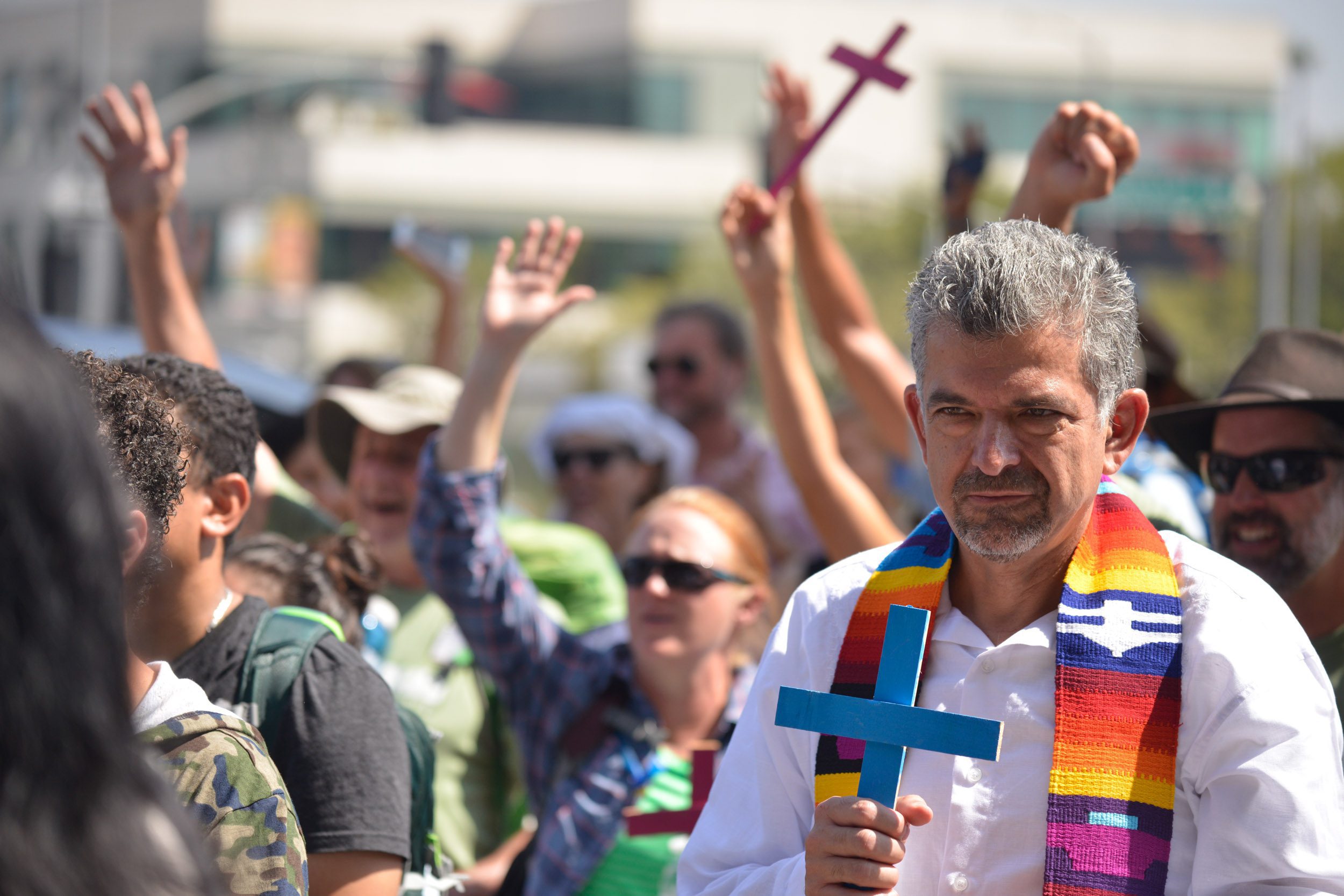By Bishop Jose Garcia
People escaping war, hunger, poverty, and persecution are stripped of their human worth when we label them as murderers, rapists, or terrorists. Rather than seeing immigrants and refugees as men, women, and children created in the image of God, some are seeing them as manifestations of evil. This perspective hardens hearts to suffering and deafens ears to cries for mercy and pleas for an opportunity to start anew.
We need to be mindful that God has a purpose in the migration movements of people around the world (Amos 9:7). Today´s migration and refugee crises present us with an opportunity to show God´s love and spirit of service towards our neighbor, the stranger at our gates. Strangers, like all people, are made in the image of God, and the Father has bestowed them with intrinsic worth. They need our affirmation and support.
Matthew 25:31 calls us to live out our faith. It clearly indicates that our Christian witness will be judged by the way we help our neighbors in need. But we do not serve our neighbors because we fear judgment. Rather, we follow Jesus’ teaching: “When you did it to one of the least of these my brothers and sisters, you were doing it to me.” (Matthew 25:40). This reminds us of Proverbs 14:31, which reads, “Those who oppress the poor insult their Maker, but helping the poor honors Him.” Through the eyes of my faith, when I serve the stranger, I see Jesus giving me an opportunity to serve and honor Him.
The Chinese Exclusion Act, the Mexican Repatriation Program, Japanese internment camps, the rejection of the MS St. Louis in 1939 carrying Jewish refugees, and other ethnophobic measures are senseless and shameful chapters of American life. They have left deep scars in the minds and souls of those who faced harsh discrimination. That is why the current immigration and refugee crises challenge us to live our faith. Are we going to be faithful stewards of the grace and gifts of love, hospitality, and service bestowed to us as citizens of the Kingdom of God? The Father has given us the ministry of reconciliation — to act as Christ’s ambassadors, reconciling the world to Him.
When the law of the land is not aligned with the higher moral imperative of the Bible, God’s word, we need to ask, “To whom do we owe a greater allegiance?” Let us remember the words of James the Just: “Remember, it is sin to know what you ought to do and then not do it” (James 4:17).
Bishop Jose Garcia is senior advisor for prayer and strategic initiatives at Bread for the World.



